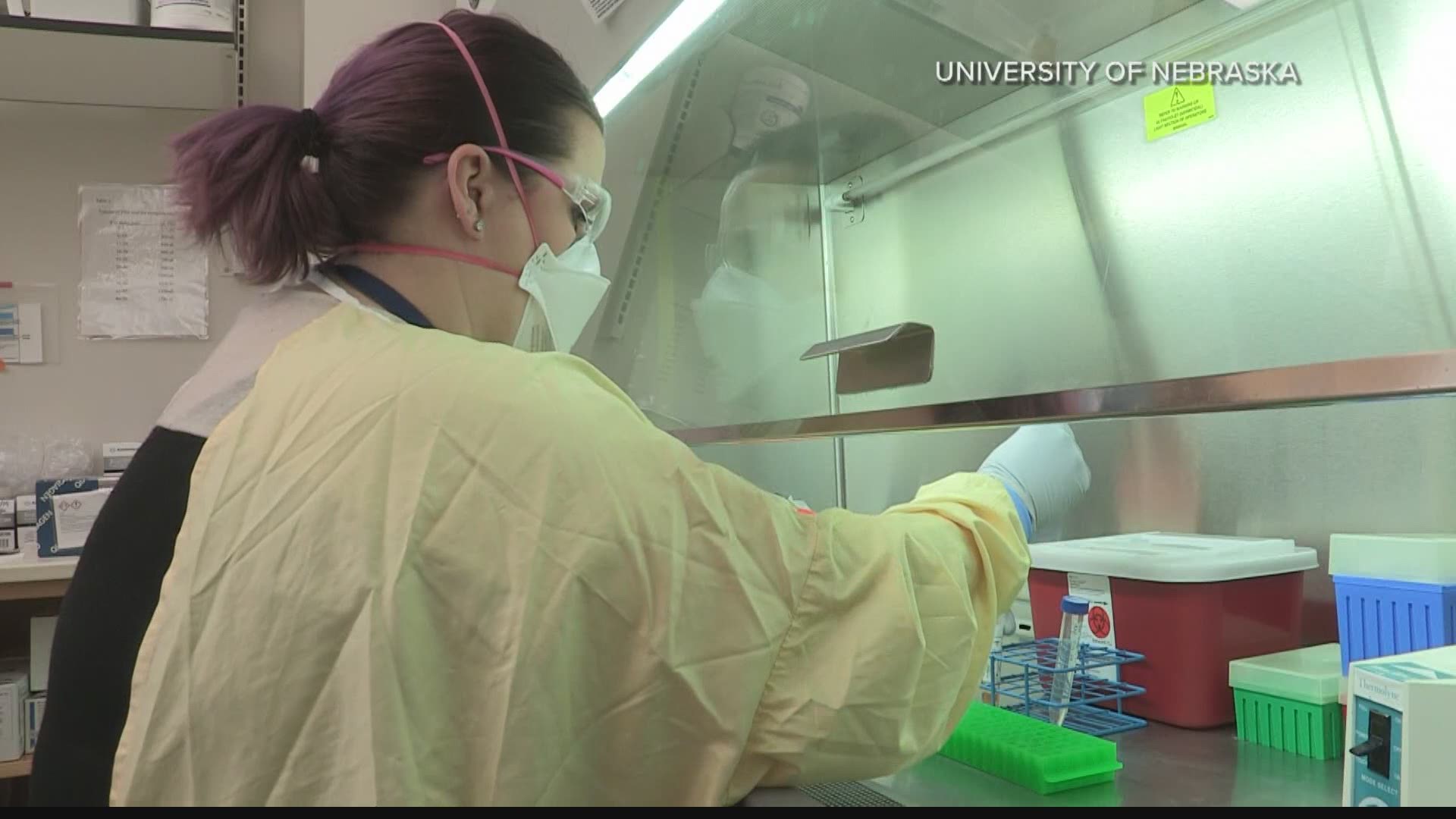INDIANAPOLIS — Testing supplies for COVID-19 are in short supply, so what are states like Indiana supposed to do?
13 Investigates looked into a practice to see if Indiana is ready to jump in.
The old practice, called "specimen pooling" or "pooling testing," is making a new splash. It simply means testing multiple specimens all at once.
Blood banks use it to screen for HIV and Hepatitis B & C, and now, the FDA has given the "go ahead" for COVID-19 testing.
"I definitely recommend pooling," said Dr. Baha Abdalhamid, who is one of the first experts to do pooling testing for COVID-19.
The Nebraska Public Health Lab in Omaha, where Abdalhamid works, was facing a crisis — the same crisis that Indiana and other states are now grappling with: a shortage of reagents or chemicals for testing.
"The best way to deal with the reagent shortage is to do pooling testing," Abdalhamid told 13 Investigates.
All across the nation, labs are reporting long waits for results, anywhere from seven days to two weeks for some COVID-19 tests.
One of Indiana's lab partners, Quest Diagnostics, is turning to pooled testing.
"Pooled specimen testing is a proven technique that will help us to optimize testing capacity at this critical time for our country," Steve Rusckowski, Chairman, CEO and President of Quest Diagnostics, said.
So how does it work?
First, a state must have a COVID-19 positivity rate under 10 percent.
Omaha had a 5 percent positivity rate when it started pooling. Indiana's positivity rate is nearly 8 percent.
The lower the rate, the more tests a lab can pool into one batch, which is anywhere from four to 10 COVID-19 samples at a time.
If the pooled sample comes back negative, all of the samples are deemed negative.
But if the batch is positive, all of the samples are individually tested. Labs usually reserve a portion of the original sample just in case.
According to data from Dr. Abdalhamid, the technique helps labs to preserve more tests.
Abdalhamid said his lab received 5,000 COVID-19 samples from individuals. By pooling testing, the Nebraska Public Health Lab saved 2,100 tests.
Those 2,100 tests translates to measurable savings:
- 47 percent savings in reagents
- 40 percent reduction in manpower
- 47 percent savings in overall testing costs
Experts say the biggest drawback is that low concentrations of a positive sample could lead to false negatives. But according to Abdalhamid, labs can make adjustments to ensure more accurate results.
"In our hands, we did not encounter any false negative testing," Abdalhamid said. "We pooled those, and we got all of our testing 100 percent."
But Quest warns there's something else pooling might not erase: long waits.
"Pooling will help expand testing capacity, but it is not a magic bullet, and testing times will continue to be strained as long as soaring COVID-19 test demand outpaces capacity," said Jay G. Wohlgemuth, M.D., Senior Vice President and Chief Medical Officer at Quest.
State health officials reveal that none of its labs across the state are pooling at this time.
Quest Diagnostics plans to start pooling at it's labs in Chantilly, Virginia and Marlborough, Massachusetts before expanding to other locations.
It's unclear if any Hoosier test samples will go to those locations and undergo pooling testing.

